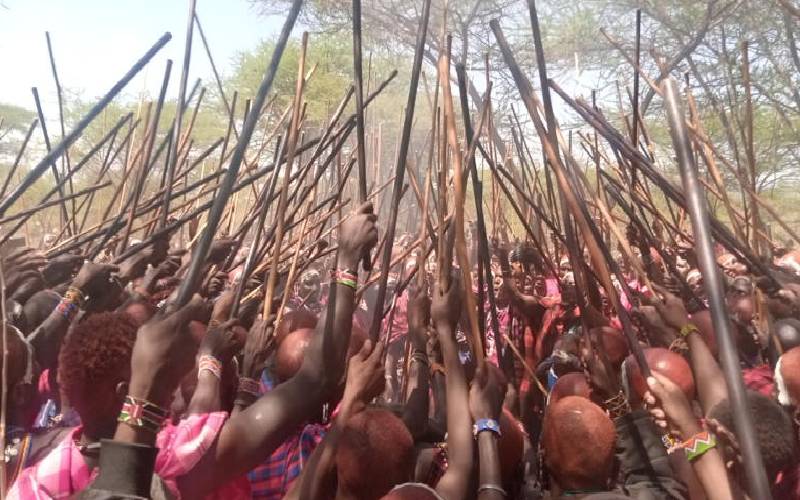×
The Standard e-Paper
Kenya’s Boldest Voice

Young Maasai elders who just graduated from morans to the Ilrmirisho age set at Mosiro in Narok East. The annual event failed to happen last year due to Covid-19 pandemic. [Robert Kiplagat, Standard]
After Covid-19 pandemic hindered them from marking the annual traditional graduation to usher in new age sets locally known as esirit in an event known as emanyatta Oloorikan, the Kekoonyokie sub-tribe of the Maasai yesterday held the event.